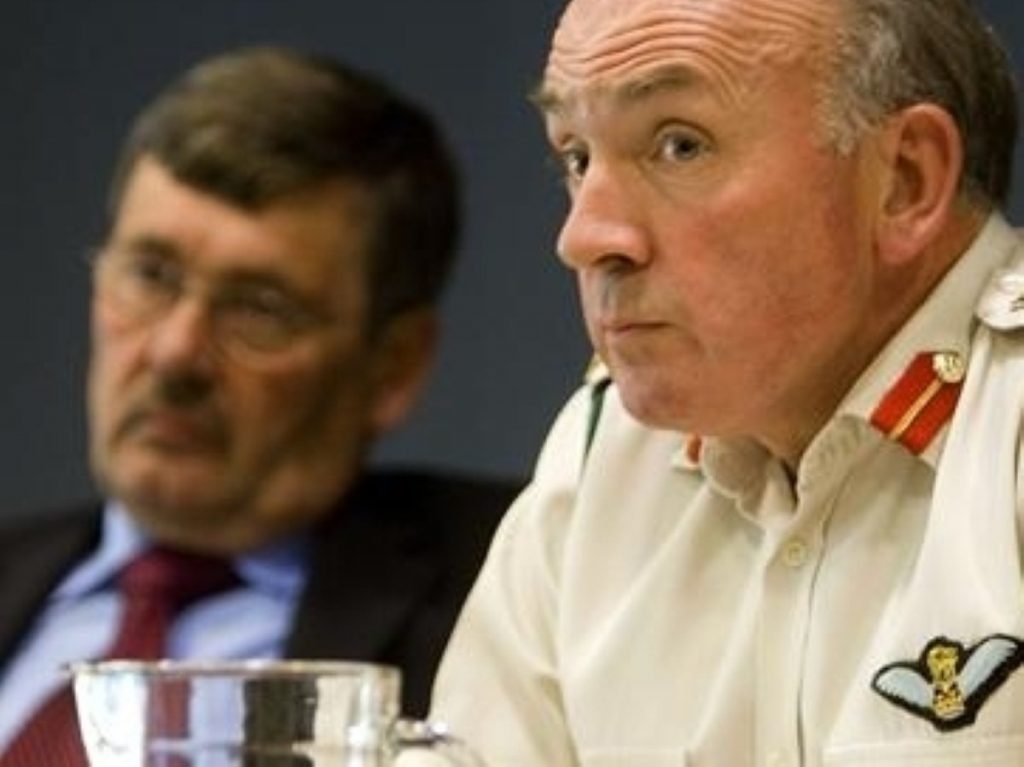Iraq inquiry: Army nearly ‘seized up’
The British Army nearly “seized up” in 2006 as it faced a “perfect storm” of challenges, its former head has told the Iraq inquiry.
General Sir Richard Dannatt, who was a senior Ministry of Defence (MoD) officer before being promoted to overall command of the Army from 2006 until 2009, proved as outspoken in front of Sir John Chilcot’s panel as he had been during his final years in the MoD.
He said the military covenant “progressively got out of balance” during 2005 and 2006 as the burden on the Army in Iraq and Afghanistan rapidly increased.
At the same time as the Taliban’s insurgency intensified in Afghanistan British forces in Iraq were facing a deteriorating security situation while being obliged to reduce their overall numbers.
“We were caught on the horns of a dilemma,” Gen Dannatt said. “The way to bring the covenant back into balance was making sure we spent sufficient resources.”
His predecessor, General Sir Mike Jackson, who headed the Army from 2003 to 2006, told the inquiry the crisis developed because it was not possible to extricate Britain from its Afghan commitments.
“We were part of this great Nato plan, with the great impetus behind it,” he explained.
“So we did find ourselves for the next 18 months, having to balance off these two theatres”.
During Gen Dannatt’s time as the Army’s senior officer he did not hesitate to put political pressure on the Labour government to improve equipment.
He said today’s troops’ clothing, weaponry and body armour were “incomparable” to those on offer before the Iraq invasion, but said the Army had “fallen short” when it came to protective vehicles.
Gen Dannatt singled out the Snatch land rover, a light patrol vehicle which proved vulnerable to roadside bombs in Iraq, as being a particular weakness which has not yet been resolved.
He claimed there was “no desire” among senior British Army officers to invade Iraq prior to 2003.
And he explained British forces were already overstretched on a number of overseas missions – but added they felt a wish to participate in the invasion if US forces were going to do so because they, like the Americans, were a “war-fighting Army”.
“We rather professionally prided ourselves on being in the higher league with the Americans,” he added.
“There was no desire to do it. There was a large feeling of we were very busy anyway, but we were happy to do it.”
Gen Jackson said strategic planners in Washington had struggled to grasp the full extent of postwar planning.
“It may be one thing to defeat by manoeuvre, but it’s quite another thing to re-establish the country concerned into a stable country,” he added. “These are very big tasks indeed.”
Yesterday the Iraq inquiry heard evidence from Hans Blix, the UN weapons inspector whose wish to continue searching for weapons of mass destruction were increasingly marginalised by US president George Bush’s administration in 2002 and 2003.
He told the panel: “Some people felt we were bugged in New York. My only complaint was that they could have listened more carefully to what we had to say.”





-01.png)